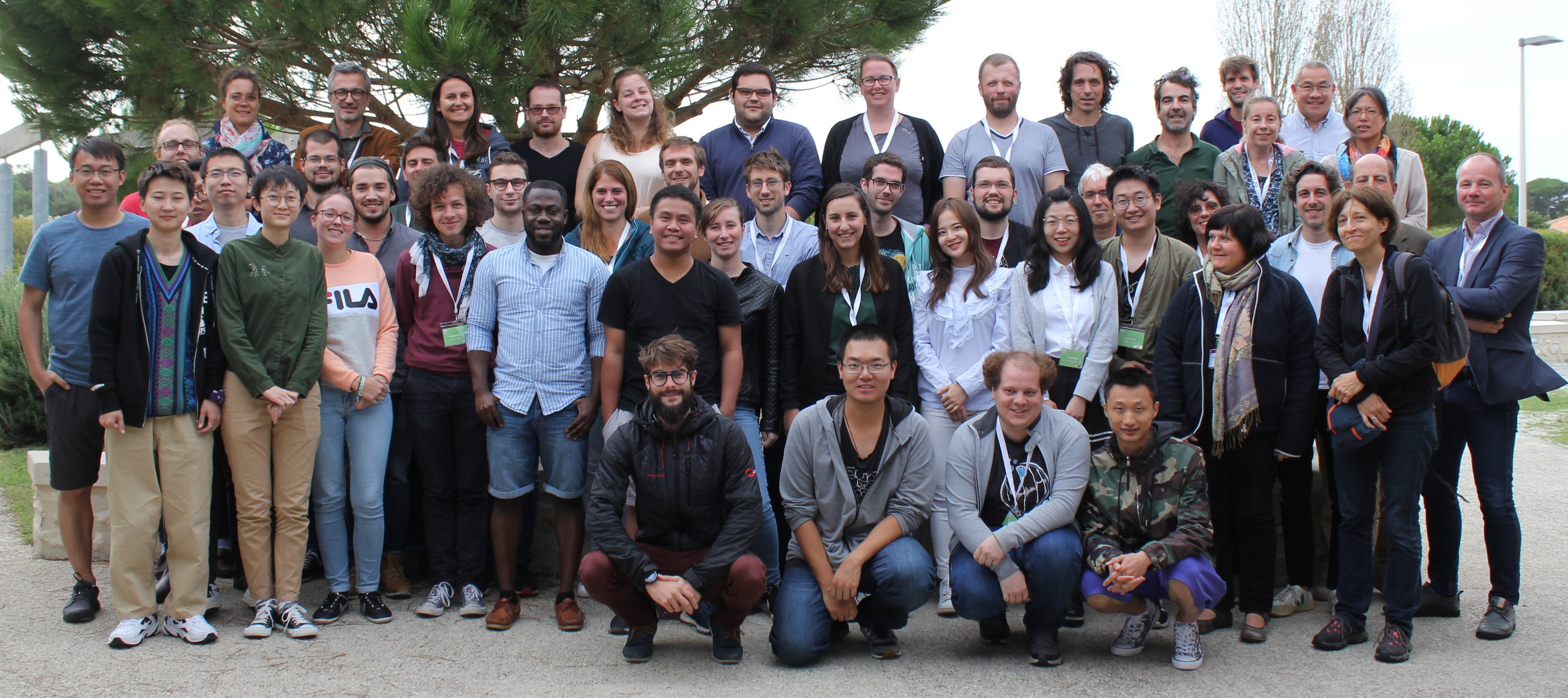
The 38th edition of the Joliot Curie International School, entitled “Nuclear Energy and the Interfaces with the Environment”, covered the latest scientific achievements in physics and chemistry of nuclear energy and the associated environmental issues with a new perspective of energy transition.
The future evolution of nuclear energy is uncertain. While some countries favor its development, the international context puts in jeopardy the deployment of fast reactors on a short term, whereas long term waste disposal projects are under debate in several European countries. The school addressed the present scientific issues and research programs under this new perspective. Topics from front-end to back-end fuel cycle, nuclear system studies, materials under irradiation, nuclear waste storage, radionuclides speciation in the environment and their possible transfer to the biotope were treated, focusing on the recent achievements in both physics and chemistry. This global perspective led to rich discussions on a topic which is still under debate in the socio-economic sphere.
The research subjects linked to nuclear energy are by nature interdisciplinary. The school was organized under four thematic tracks, each of them treated following an interdisciplinary approach: nuclear systems, fuel reprocessing, environment issues and socio-economic related questions. The school was an opportunity to gather all the different disciplines and offer a large view of different scientific questions linked to nuclear energy and to the associated environmental issues. The students were therefore able to put into perspective their own research projects into a wider context, as well as present their work within two poster sessions during the first days of the school.
The school took place from September 22 (Sunday) to 27 (Friday) 2019 at Saint-Pierre d'Oléron (France).
EJC2019 is an event with the support of CNRS & CEA.
Photos from EJC 2019 (use ie or Chrome preferably)